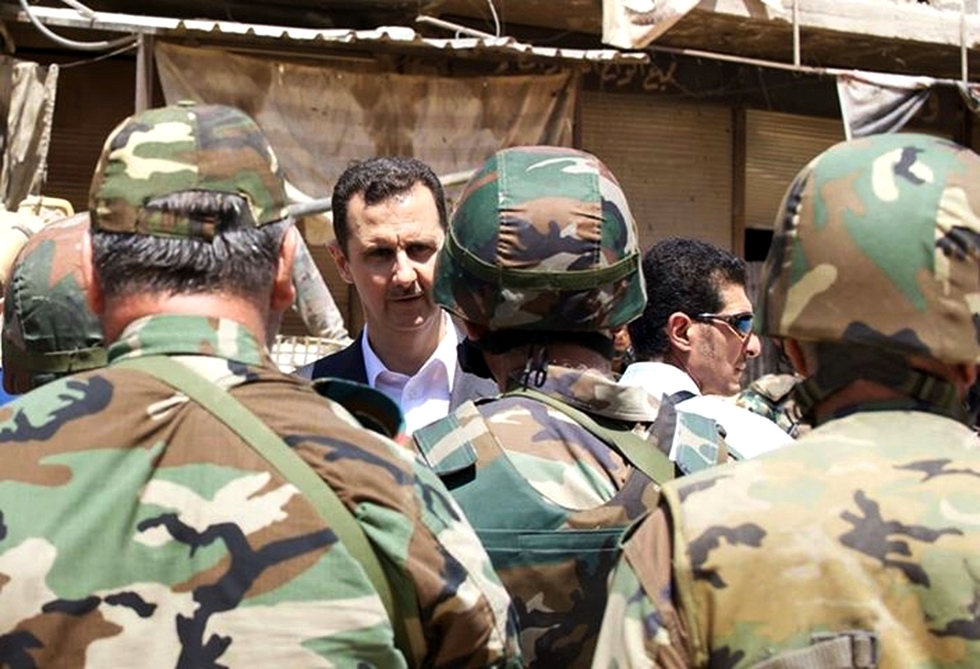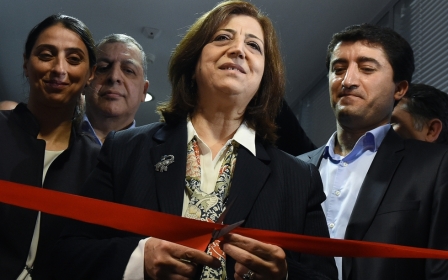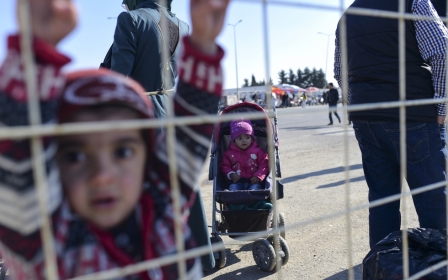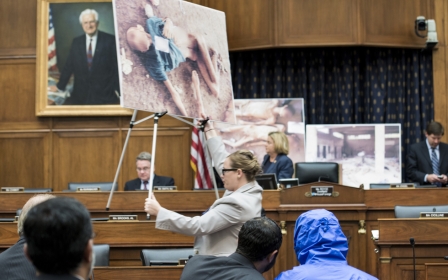UK faces decision to ally with Assad against IS, former generals say

The UK may soon have to decide whether to fight alongside Bashar al-Assad against the Islamic State (IS) group, two former British generals have told two parliamentary meetings.
At the Commons defence select committee on Tuesday, retired Lieutenant General Sir Simon Mayall said it was already a foregone conclusion that the Syrian government would recapture Aleppo, aided by Russian bombs, leaving it in a commanding position against non-IS rebels.
"We will be left with a fairly stark contrast – do we want to crush IS in conjunction [with Assad] which will, of course, make it quicker, but will come with all sorts of sensitivities," he said.
The critical question, Mayall said, was whether after capturing Aleppo, Syrian government forces turned their attention to the IS-strongholds of Raqqa and Palmyra – and how Russia and the West respond.
"At that stage, it will be very interesting to see what Russia comes back to the table with – whether its sanctions, Crimea, Ukraine – in order to be helpful," Mayall said.
In a separate meeting of the All-Party Parliamentary Group on Friends of Syria, retired Major General Tim Cross said: "I have long argued that if we are serious about defeating IS on the ground, then it's probable that we have to do that alongside the Syrian government, as unpalatable as that may be."
This realpolitik option, Cross said, comes after years of what he described as "hands-off, passive" support for Syrian rebels, resulting in the disappearance of a viable opposition fighting force in the country's north.
But Syrian experts at the Friends of Syria meeting said such an IS-centric policy abandoned opposition fighters at their most vulnerable time. They warned that fighters starved of Western-supplied equipment and money would increasingly switch allegiance to IS and the al-Qaeda affiliate, the Nusra Front.
"As a result of Russian air strikes... what we call ‘the moderate Syrian opposition' is at risk of becoming extinct and rebels that the UK and other countries can work with will be pushed in the direction of Nusra and IS," said Lina Khatib, a senior research associate with the Arab Reform Initiative.
Thomas Pierret, a lecturer in contemporary Islam at the University of Edinburgh, told the same meeting that a narrow focus on destroying IS would only sustain the group in the long term.
And Russian efforts to prop up the Assad government by destroying the 'moderate opposition' were also having a feedback effect for the West.
"They prop up Assad by destroying the fighters we need," he said. "If they succeed, IS will never be defeated."
As a result of the US-led coalition bombing against IS in Iraq, Iranian militias that had left Syria to fight in Iraq were able to return to Syria to fight rebels, he said.
Pierret said that the West "needs to show it's ready for a long war of attrition through supporting the opposition".
To do that, the West would have to be willing not to fight IS with Russia, but instead confront Moscow's attacks against opposition fighters.
"Russian promises are not serious. There is no reason to trust them. Western red lines? We know what they are worth," he said. "The only guarantee is trying to maintain some form of balance on the battlefield. So Russia needs to understand that their behaviour has a cost."
All agreed that the US appeared in retreat in Syria, with waning support for opposition fighters and the loss of will to enforce UN resolutions that would stop bombardments and allow the delivery of humanitarian aid.
But in the absence of American willingness to press Russia - as comments by the US Secretary of State John Kerry last week would seem to indicate – questions remain about how Moscow could be stopped.
"I think the US is the only Western power able to have this bilateral engagement with Russia," Khatib said. "Sadly, I don't see any signs of this happening while the US is not able to do so."
New MEE newsletter: Jerusalem Dispatch
Sign up to get the latest insights and analysis on Israel-Palestine, alongside Turkey Unpacked and other MEE newsletters
Middle East Eye delivers independent and unrivalled coverage and analysis of the Middle East, North Africa and beyond. To learn more about republishing this content and the associated fees, please fill out this form. More about MEE can be found here.





